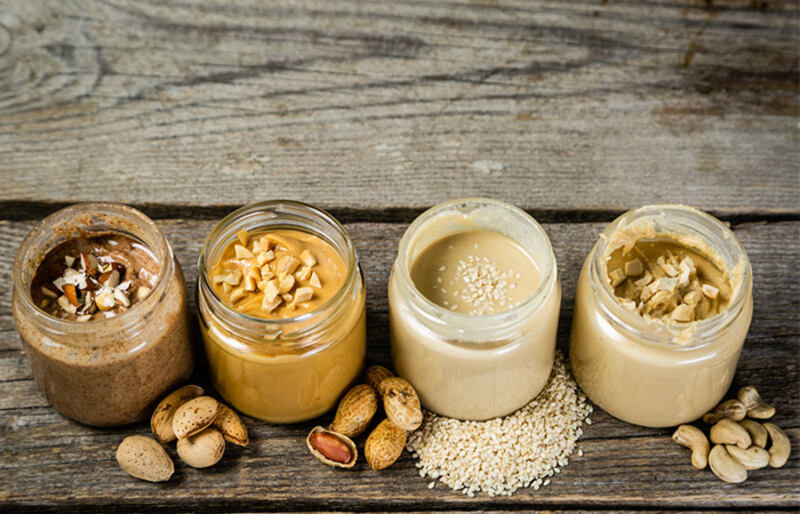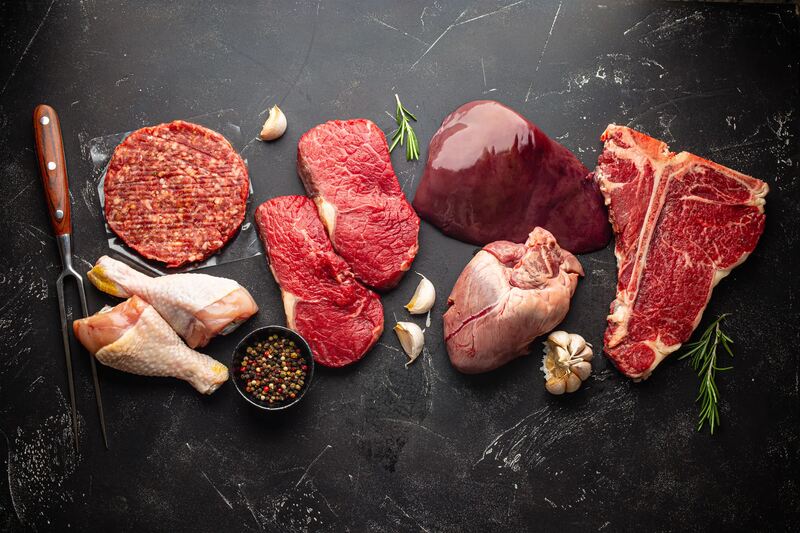Exploring the World of Copper-Rich Foods
Feb 11, 2024 By Nancy Miller
An essential trace mineral, Copper actively contributes to numerous bodily functions. It aids in the formation of red blood cells, a vital component for oxygen transportation throughout our bodies. Furthermore, it bolsters immune system health. The benefits of this indispensable element are truly profound. They cannot be overstated. In exploring foods rich in copper and their nutritional significance, we aim to elucidate how incorporating these into your diet promotes overall well-being.
1. Shellfish - Nature's Copper Bounty
A diverse array, from lobster to mussels, these shellfish teem with copper, thus standing out nutritionally. Their rich taste and varied texture delight the palate. However, beyond this culinary appeal, shellfish provide an abundant supply of copper that is indispensable in enzymatic reactions, nerve function, and connective tissue formation. Among these treasures, oysters shine like jewels. They not only tantalize our taste buds but also offer a concentrated source of copper, an element essential for preventing anemia while bolstering the body's antioxidant defenses. Incorporating shellfish into your diet offers more than a mere gastronomic adventure. It presents an investment towards enhancing your overall health.
Shellfish, beyond offering an abundance of other essential nutrients like zinc and selenium to omega-3 fatty acids, demonstrate versatility that goes past copper. By incorporating these marine delicacies into your diet, you don't just secure a copper-rich diet. Rather, you guarantee access to vital micronutrients critical for maintaining vitality. It's about embracing the spectrum of shellfish bounty, a truly well-rounded nutritional profile.
- Consideration: Despite their nutritional benefits, individuals with shellfish allergies should exercise caution and explore alternative copper-rich foods.
- Caution: Be mindful of the sourcing of shellfish to avoid contaminants and ensure that they are harvested from reputable and sustainable sources.
2. Nuts and Seeds - Tiny Packages of Copper Power
Beyond their role as convenient and flavorful snacks, nuts and seeds emerge as miniature nutritional powerhouses. They are densely packed with copper. Specifically, cashews, sunflower seeds, and almonds not only satisfy your cravings but also contribute to robust connective tissue maintenance. This is a key factor in efficient energy production. These tiny wonders provide more than just copper. They offer a spectrum of essential minerals such as magnesium, phosphorus, and zinc, fortifying the body's structural integrity further.

Moreover, including a diverse range of nuts and seeds introduces distinct health benefits. For example, heart-healthy omega-3 fatty acids found in walnuts and cellular well-being are promoted by the antioxidants present in chia seeds. Embracing a holistic approach to nutrition involves more than merely meeting mineral requirements. It also entails elevating your diet with this assortment of copper-rich nuts and seeds.
- Consideration: While nuts and seeds are nutritious, their calorie density should be considered for those mindful of their energy intake.
- Fact: Pumpkin seeds, also known as pepitas, are not only a copper source but also contain tryptophan, aiding in mood regulation.
3. Legumes - Copper-Rich Plant-Based Goodness
Legumes, the unsung heroes of plant-based diets, present exceptional contributions in terms of copper. Lentils, chickpeas, and black beans not only boast high fiber and protein content but also provide a substantial dose of this essential mineral. Through their nutritional symphony that includes essential amino acids, vitamins, and minerals, legumes go beyond merely being rich in minerals to offer sustenance for sustained well-being on your plate.
The versatile addition of legumes to meals derives from their diverse culinary uses. They can be incorporated into hearty stews or vibrant salads, thus not only enhancing copper intake but also contributing to texture and flavor. Furthermore, these plant-based delights offer a spectrum of health benefits. It’s an enticing array that makes embracing them more than just a means to meet our copper requirements. It is one step towards cultivating a sustainable diet enriched with heart-healthy components.
- Consideration: Soaking and properly cooking legumes can enhance nutrient absorption and reduce anti-nutrient content.
- Fact: Legumes contribute to gut health by promoting the growth of beneficial bacteria due to their fiber content.
4. Dark Chocolate - A Sweet Copper Indulgence
Not only is indulging in the decadence of dark chocolate a treat for your taste buds, but it also provides an unexpected source of copper. Its higher cocoa content enhances both flavor and nutritional value. Dark chocolate, beyond merely being rich in copper, contains flavonoids. These potent antioxidants not only contribute to cardiovascular health but could potentially yield cognitive benefits as well.
Moreover, indulging in dark chocolate links to enhancing mood. Do copper-rich attributes add a psychological dimension due to the presence of serotonin precursors? Not only do you derive pleasure from consuming it, but also indulge mindfully as part of a balanced diet.
- Consideration: Opt for dark chocolate with at least 70% cocoa content to maximize its nutritional benefits.
- Fact: Dark chocolate consumption has been associated with improved blood flow, potentially benefiting heart health.
5. Organ Meats - Nutrient-Dense Copper Suppliers
Modern diets often overlook organ meats, which emerge as nutrient-dense treasures prominently featuring copper. While the liver and kidneys may be an acquired taste for some, their unrivaled copper content significantly contributes to metabolic processes and immune function in the body. In addition to providing a rich source of copper. These organ meats also abound with vitamins A & B12, iron, along other essential amino acids that are crucial for optimal health.

The unique advantage of organ meats lies in their high nutritional density. Small portions provide a substantial nutrient boost, making them an efficient solution to meet specific dietary needs. By occasionally incorporating these meats into your diet, you embark not only on a culinary adventure but also strategically enhance both copper intake and overall nutrient profile.
- Consideration: Moderation is key when consuming organ meats due to their high vitamin A content.
- Fact: Organ meats are often more nutrient-dense than muscle meats, offering a concentrated source of essential nutrients.
6. Whole Grains - Copper in Every Bite
Barley and quinoa, whole grains that extend beyond mere dietary staples, supply a substantial amount of copper along with an abundance of essential nutrients. The fiber content in these grains promotes cardiovascular health, aids digestion, and offers sustained energy release. Integrating whole grains into your daily meals not only provides you with copper but also represents a holistic approach to nutrition, one that nurtures overall well-being.
Moreover, your culinary repertoire gains an exhilarating element from the diverse array of whole grains. The incorporation of a variety of these offers not only a delightful dining experience but also one that is nutritionally robust, from quinoa's nutty flavor to barley's chewy texture. Choosing whole grains as a dietary cornerstone does more than optimize copper intake. It signifies committing to nourish your body with an extensive range of health-promoting nutrients.
- Consideration: Whole grains contain phytates, which can inhibit mineral absorption; soaking or fermenting can mitigate this effect.
- Fact: The fiber in whole grains promotes a feeling of fullness, aiding in weight management.
Conclusion
To conclude, incorporating copper-rich foods into your diet proves a proactive measure for boosting overall health. Shellfish, nuts, legumes including dark chocolate, organ meats, and whole grains all offer unique nutritional benefits that may cater to individual preferences. By maintaining an assorted yet balanced diet supplemented with these sources of copper, you can guarantee meeting your body's mineral needs, thus bolstering various physiological functions while fostering general well-being. Consider these dietary choices as a flavorful investment in your health journey.








